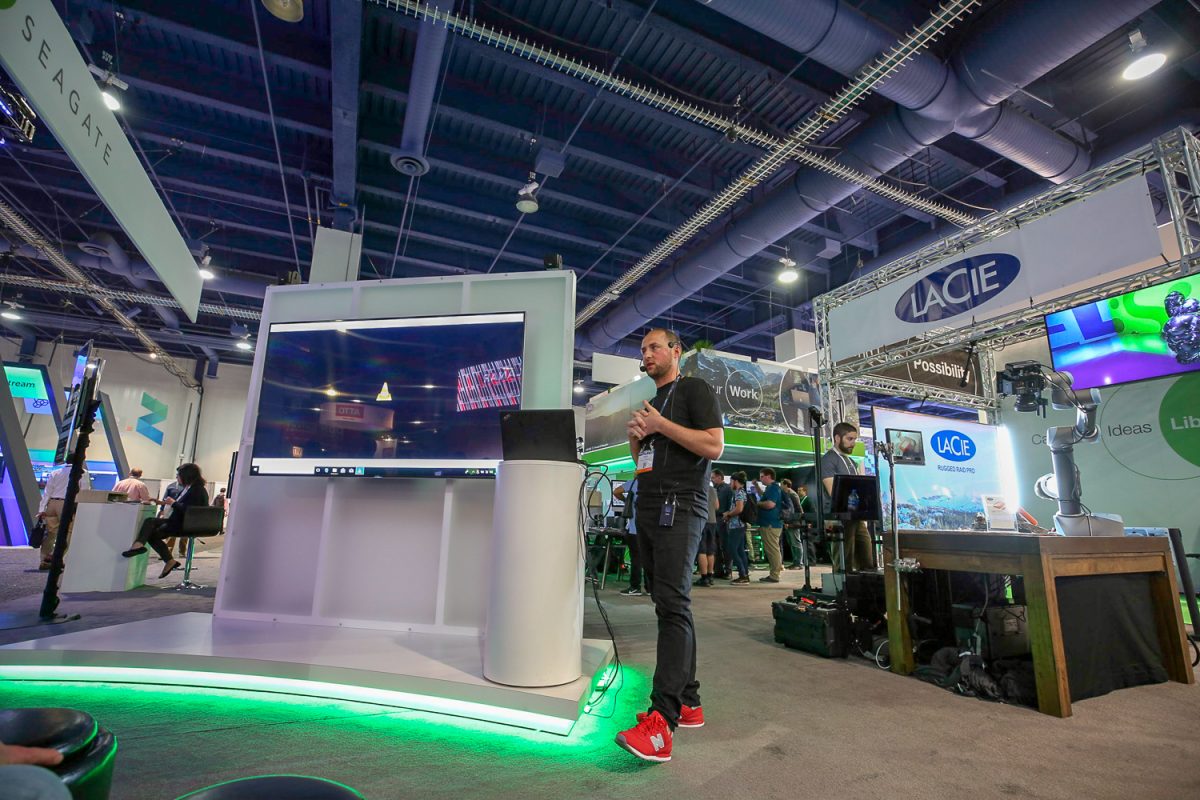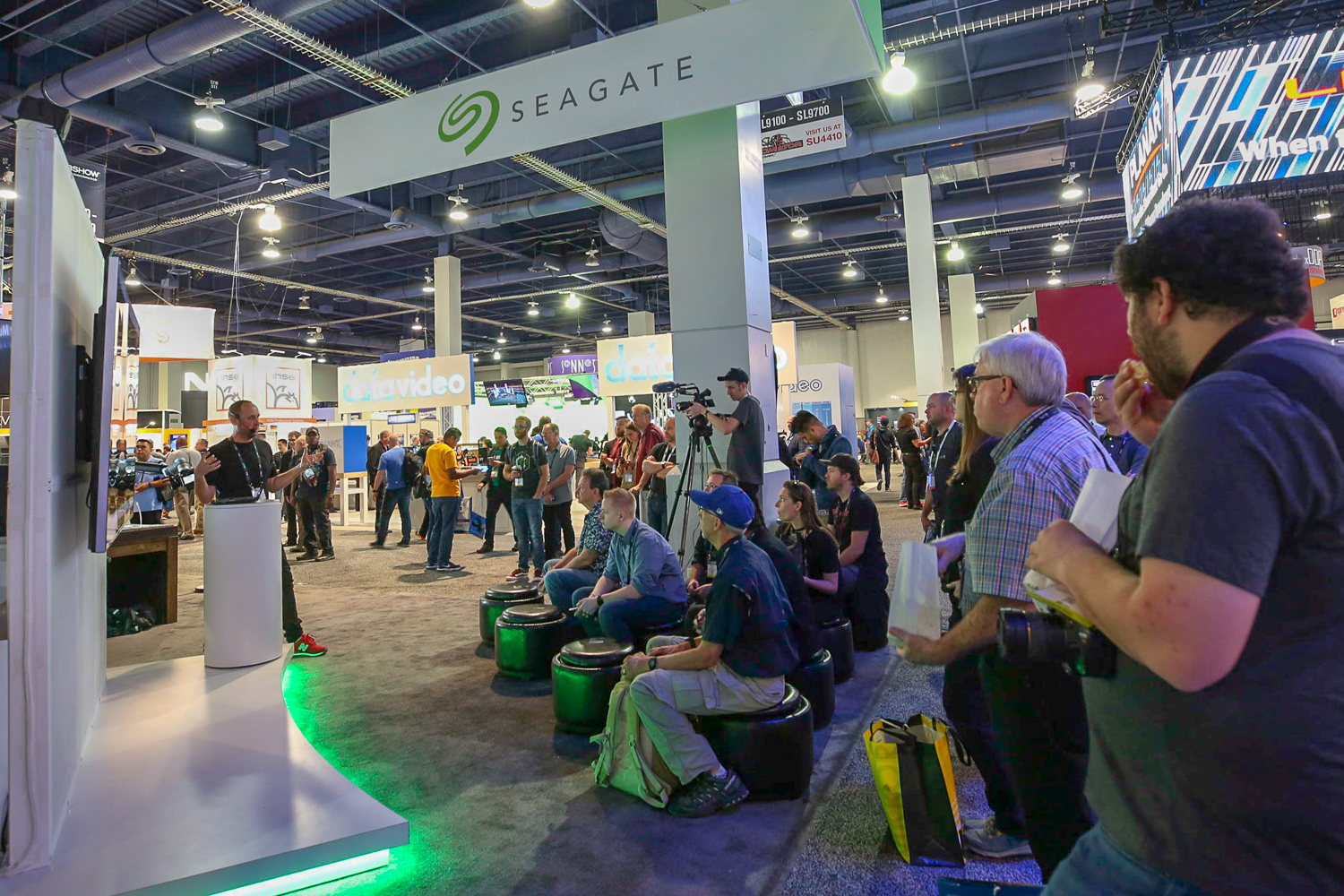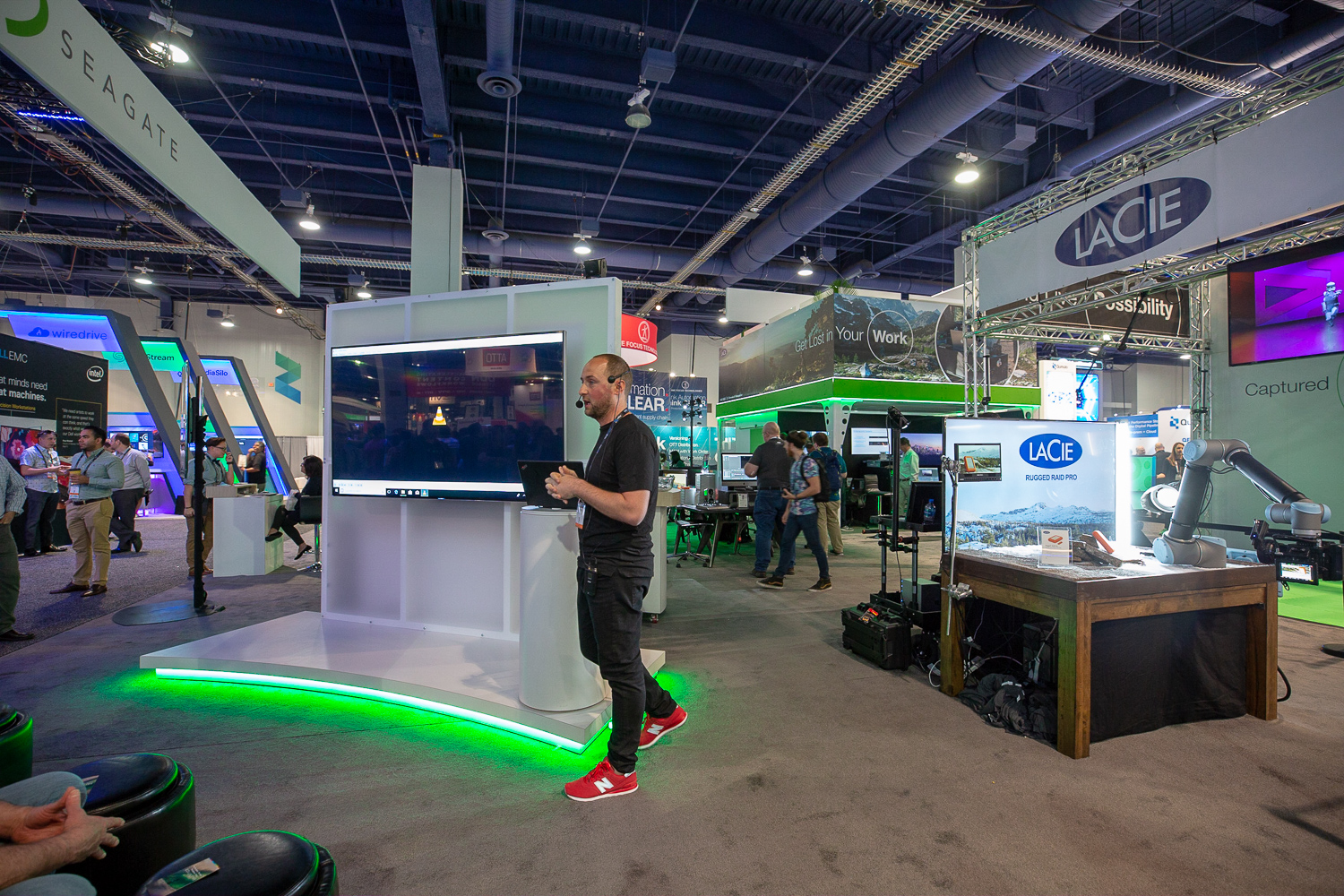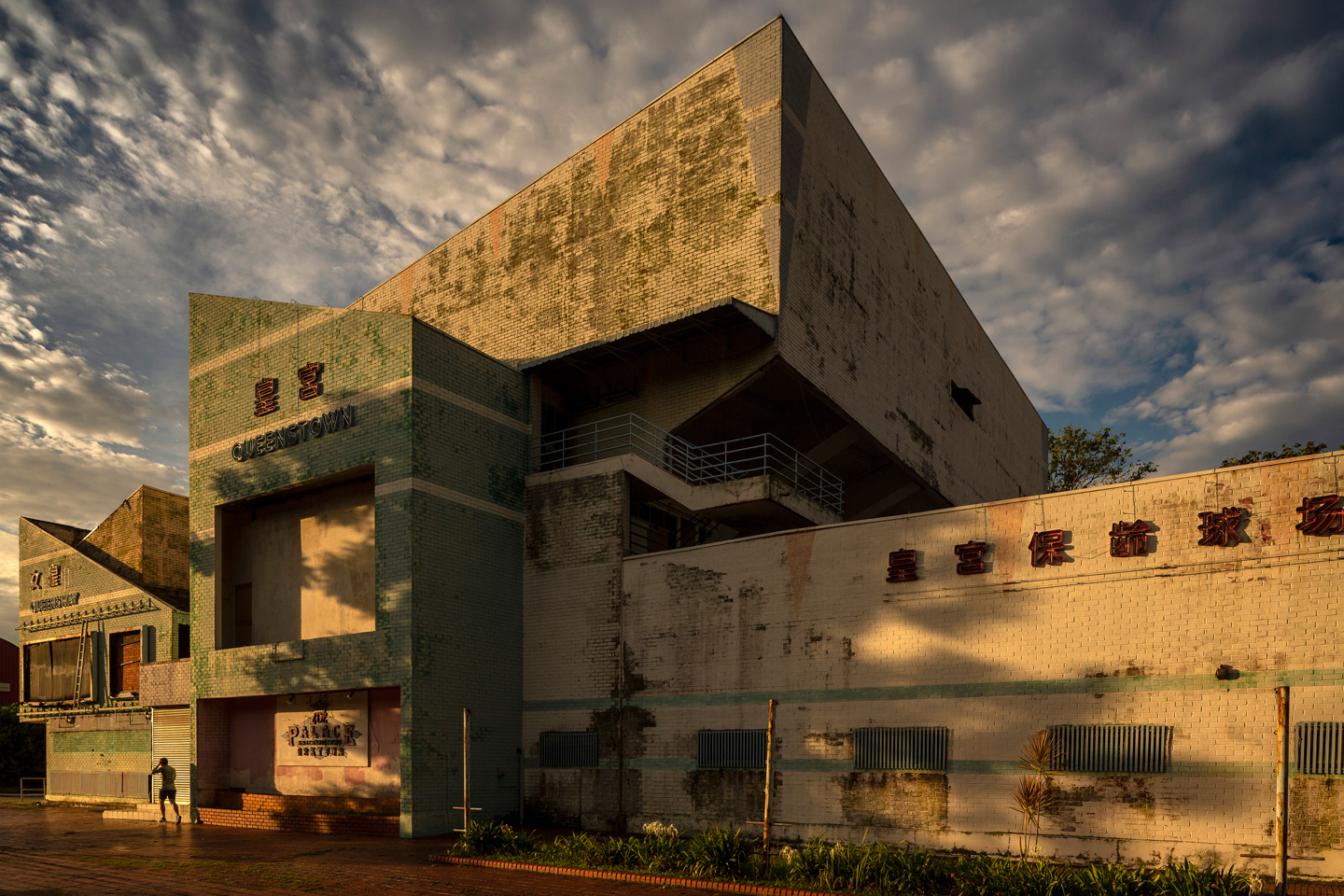At this year’s NAB Show, Seagate and LaCie hosted a full lineup of award-winning creative pros sharing their workflow tips — the COLLECTIVE Speaker Series. We’re also sharing stories and insights from some of our Speaker Series partners here on the blog.
In this video shot at our COLLECTIVE Speaker Series, learn what it’s been like for Steven “Philly” Philip to navigate and succeed in the music video world with virtually all the odds against him — living in Milwaukee, no film school, no gear, no budget, and no industry contacts.
Then read our interview with Philly below. He offers pro tips about when gear matters and when a director’s aesthetic approach matters even more, and answers some questions about his experiences as a creative.
Interview: music video director Steve “Philly” Philip
Philly, can you give us a bit of your background, introduce yourself to readers?
My name Steven Philip, more commonly known as Philly, and I’m a music video director. I’ve had the pleasure of working in diverse music genres with artists including: T.I., Lil Wayne, J. Cole, Snoop Dogg, Trae Tha Truth and many more. Throughout my career, my videos have been placed on major networks and have acquired millions of views; over 25 of my videos were placed on MTV last year alone. Self-taught with no formal film school training, I’ve been able to develop a unique style and approach to music videos that’s set me apart from the traditional filmmaker.
I strongly believe this different perspective has helped me attract as well as sustain short and long-term partnerships and clientele. Because of this, I try and empower other filmmakers by encouraging them to embrace their differences and individual talents, instead of shying away from “non industry standard” way of doing things.
You can see my most recent demo reel below:
Long ago, what did you each want to be “when you grew up” — did it have anything to do with what you’re doing now?
Honestly, a professional baseball player.
But when I was hit with a pitch in the face I started focusing on my love for art. Not video, ironically, but graphics art and photography — my father is a commercial graphic artist so I was always intrigued by what he did. I would draw and create graphics online, and eventually started shooting photos.
The transition from photos to music videos came naturally when artists I shot photos for wanted videos.
How did you get started in video production?
Simply by demand in my local area for music videos. I had a request to shoot a music video, so my friend’s dad had a camera that we borrowed to shoot with — on VHS. And the rest is history!
What sort of struggles and triumphs have you encountered in the field?
I’m from a smaller city, and nobody there is making a living doing music videos, because there simply aren’t enough artists with budgets to afford a big production. I figured out a way to maximize my videos for the lowest cost possible, and harness the internet to showcase them, in order to get bigger, out-of-state clients.
What kind of films do you mainly focus on creating? And why?
My work is 90 percent music videos. I love the single-serving size approach to them, because it allows me to showcase varieties of styles without getting overly involved in one thing at a time.
What sets your work apart from that of other filmmakers?
100 percent, I think it’s my ability to make a diamond out of dirt. Where many directors would falter due to lack of budget, bad location, or limited resources, I’ve found this to be where I thrive. Those skills were honed by being in this situation from the start.
Is there an example of when something truly unexpected happened on set? How did you make the most of it?
I’ve had many situations where an artist hasn’t shown up, or wants to change location last-minute. My ability to pivot — and to take anything and everything available to myself and salvage the situation, all while acting like it’s no big deal — is how I’ve been able to fix or even improve the overall shoot.
Do you have any experiences that might offer other creatives wisdom on how to survive in a tough field like filmmaking?
I was cast on an MTV reality show for “up and coming entrepreneurs,” and I thought it was my big break. Well — I was eliminated off the show before it even started, because of a legal technicality regarding when I graduated from college. Per the rules, I graduated one month after the timeframe of what’s required for people being featured on the show.
I was devastated, and was in a slump for months — but I bounced back stronger. Ironically, the show tanked and was really bad.
This experience was when I realized that no matter what, things will be OK. And it gave me the maturity to take everything in stride.
Do you have any tips for other filmmakers looking to manage their film footage and workflow more efficiently?
Don’t be cheap. And time is money. Choose high quality gear at all times — it will save you money in the long run. For example, fast reliable drives save you time unloading and editing. The speed of that drive dictates your editing capabilities when editing off of it, so by having high-speed and reliable drives, your editing goes faster. And that time saved equals money and happy clients.
What role has data storage played in your life over the years?
I have footage from 10 years ago, I’m always getting asked for footage from old stuff from multiple publications, websites and artists. It’s crucial for me to have good short- and long-term storage options, because I’ve had videos re-released years later — and with my editing skills always improving, being able to access the original files and add to them is super clutch.
Do you typically back up your footage while filming, or do you save that process for the studio?
I shoot and dump on site. I have my laptop my external SSD drive there and ready. From external laptop battery supplies and SSD drives, I’m ready to unload and even edit on set.
As a filmmaker, what’s the one thing that matters most when telling a great visual story?
For me personally, it’s always been the aesthetic — being consistent with the vibe of the story. Good/bad camera doesn’t matter as much as the way it’s used. The way your scene is shot has to add to the story’s bottom line — shooting with a million-dollar camera but using it wrong makes cool-looking shots but bad movies.
I’ve seen some really bad movies that looked amazing, but the aesthetic was not in tune with the story and was overshadowing the story. I’ve also seen really good movies shot for low budgets — but because they matched the story line, it added tremendously to the overall product.











